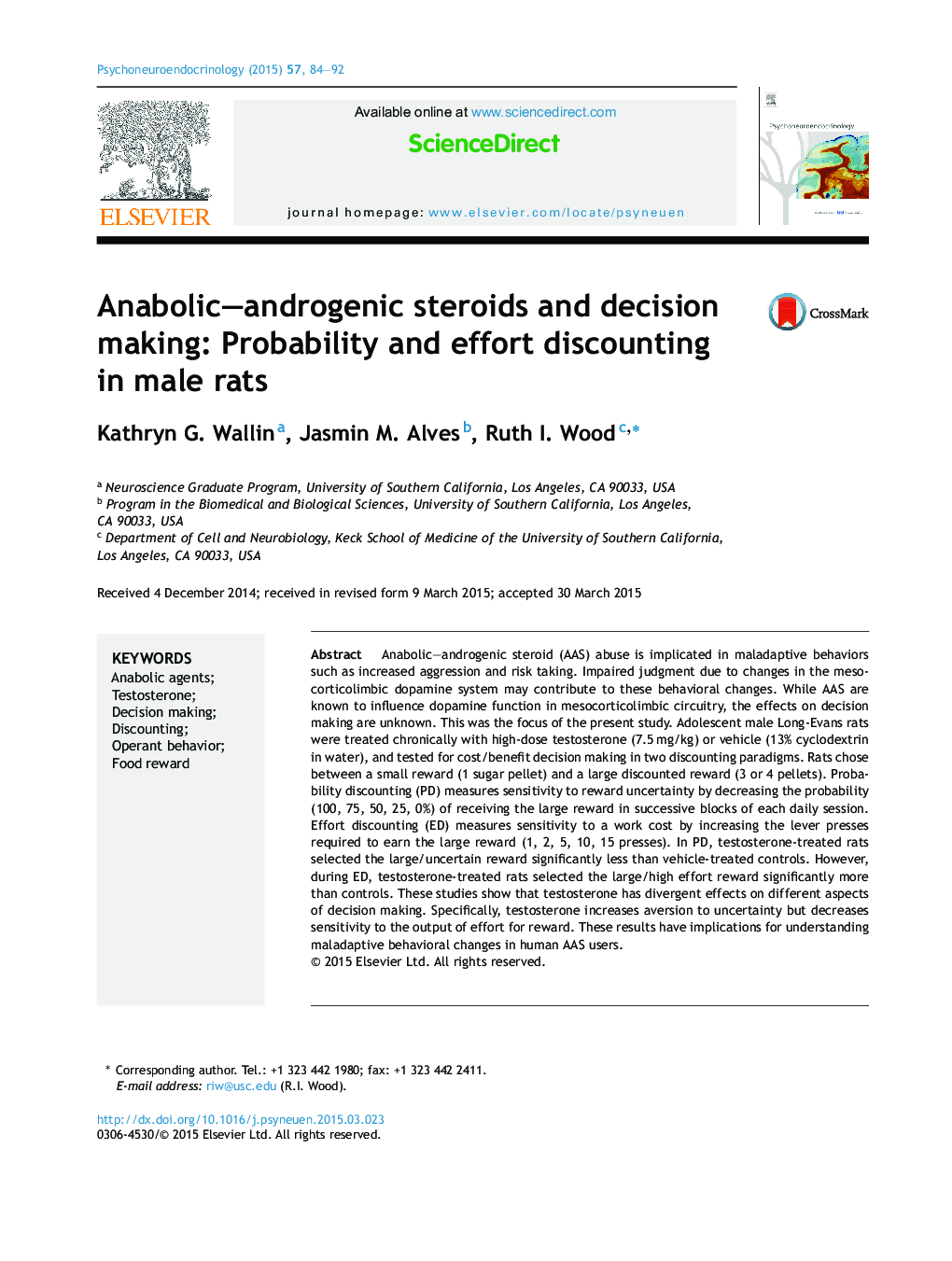| کد مقاله | کد نشریه | سال انتشار | مقاله انگلیسی | نسخه تمام متن |
|---|---|---|---|---|
| 335651 | 547008 | 2015 | 9 صفحه PDF | دانلود رایگان |
• We use high-dose testosterone treatment to model anabolic-androgenic steroid abuse in rats.
• Testosterone treatment affects decision-making behavior on discounting tasks.
• Testosterone treatment increases sensitivity to reward uncertainty in probability discounting.
• Testosterone treatment decreases sensitivity to effort in effort discounting.
Anabolic–androgenic steroid (AAS) abuse is implicated in maladaptive behaviors such as increased aggression and risk taking. Impaired judgment due to changes in the mesocorticolimbic dopamine system may contribute to these behavioral changes. While AAS are known to influence dopamine function in mesocorticolimbic circuitry, the effects on decision making are unknown. This was the focus of the present study. Adolescent male Long-Evans rats were treated chronically with high-dose testosterone (7.5 mg/kg) or vehicle (13% cyclodextrin in water), and tested for cost/benefit decision making in two discounting paradigms. Rats chose between a small reward (1 sugar pellet) and a large discounted reward (3 or 4 pellets). Probability discounting (PD) measures sensitivity to reward uncertainty by decreasing the probability (100, 75, 50, 25, 0%) of receiving the large reward in successive blocks of each daily session. Effort discounting (ED) measures sensitivity to a work cost by increasing the lever presses required to earn the large reward (1, 2, 5, 10, 15 presses). In PD, testosterone-treated rats selected the large/uncertain reward significantly less than vehicle-treated controls. However, during ED, testosterone-treated rats selected the large/high effort reward significantly more than controls. These studies show that testosterone has divergent effects on different aspects of decision making. Specifically, testosterone increases aversion to uncertainty but decreases sensitivity to the output of effort for reward. These results have implications for understanding maladaptive behavioral changes in human AAS users.
Journal: Psychoneuroendocrinology - Volume 57, July 2015, Pages 84–92
